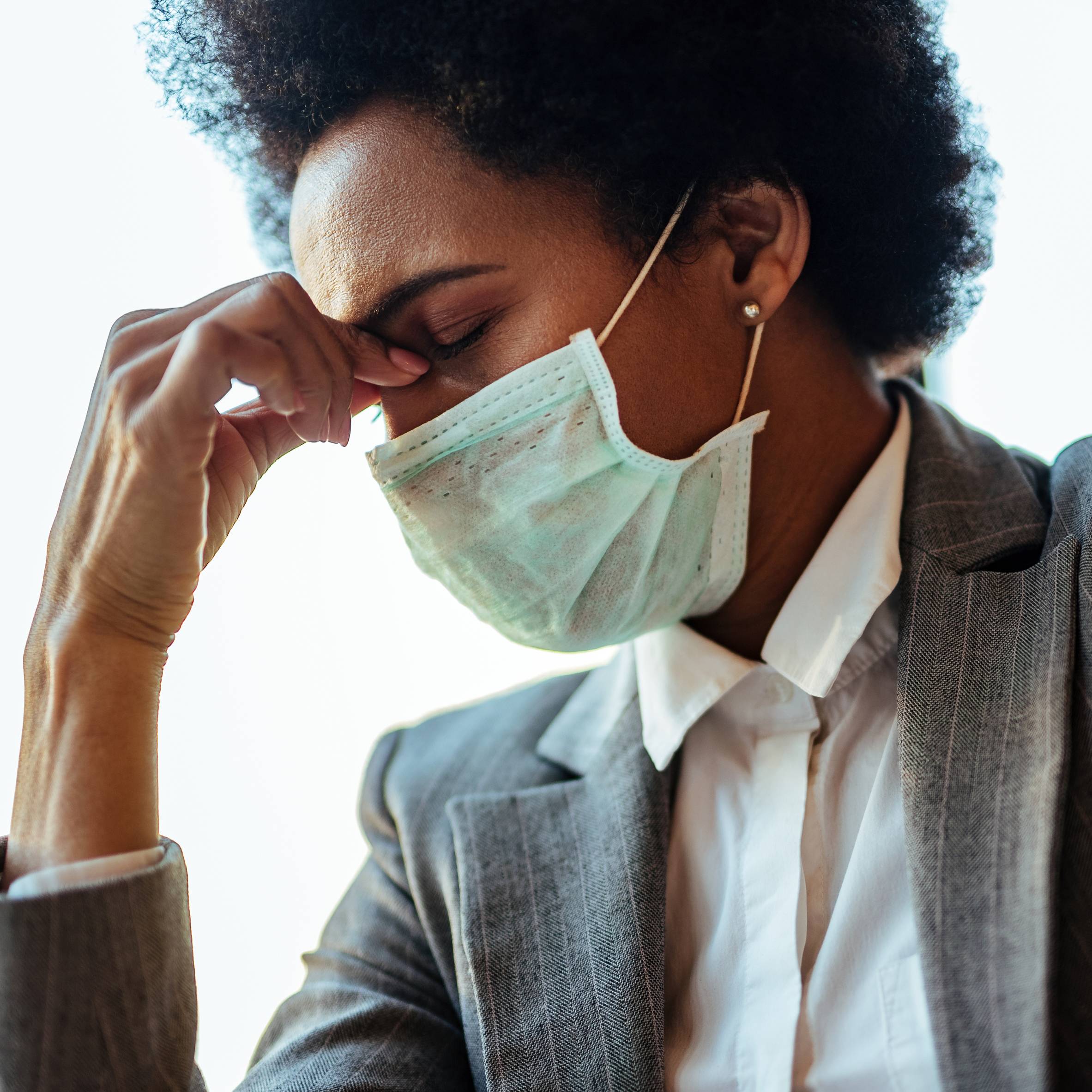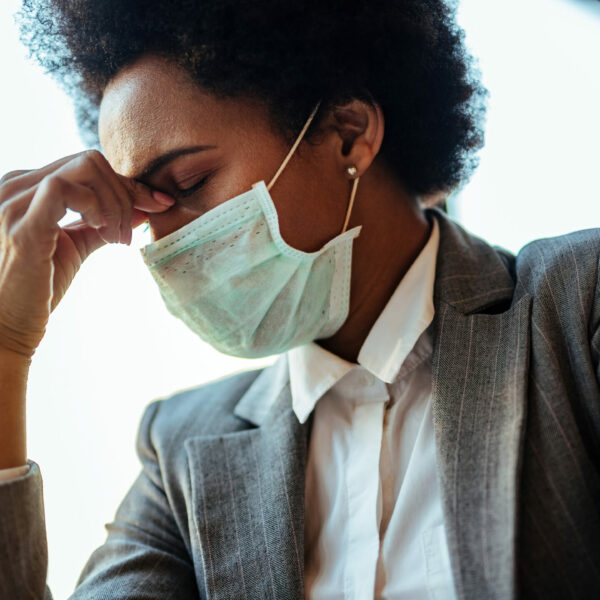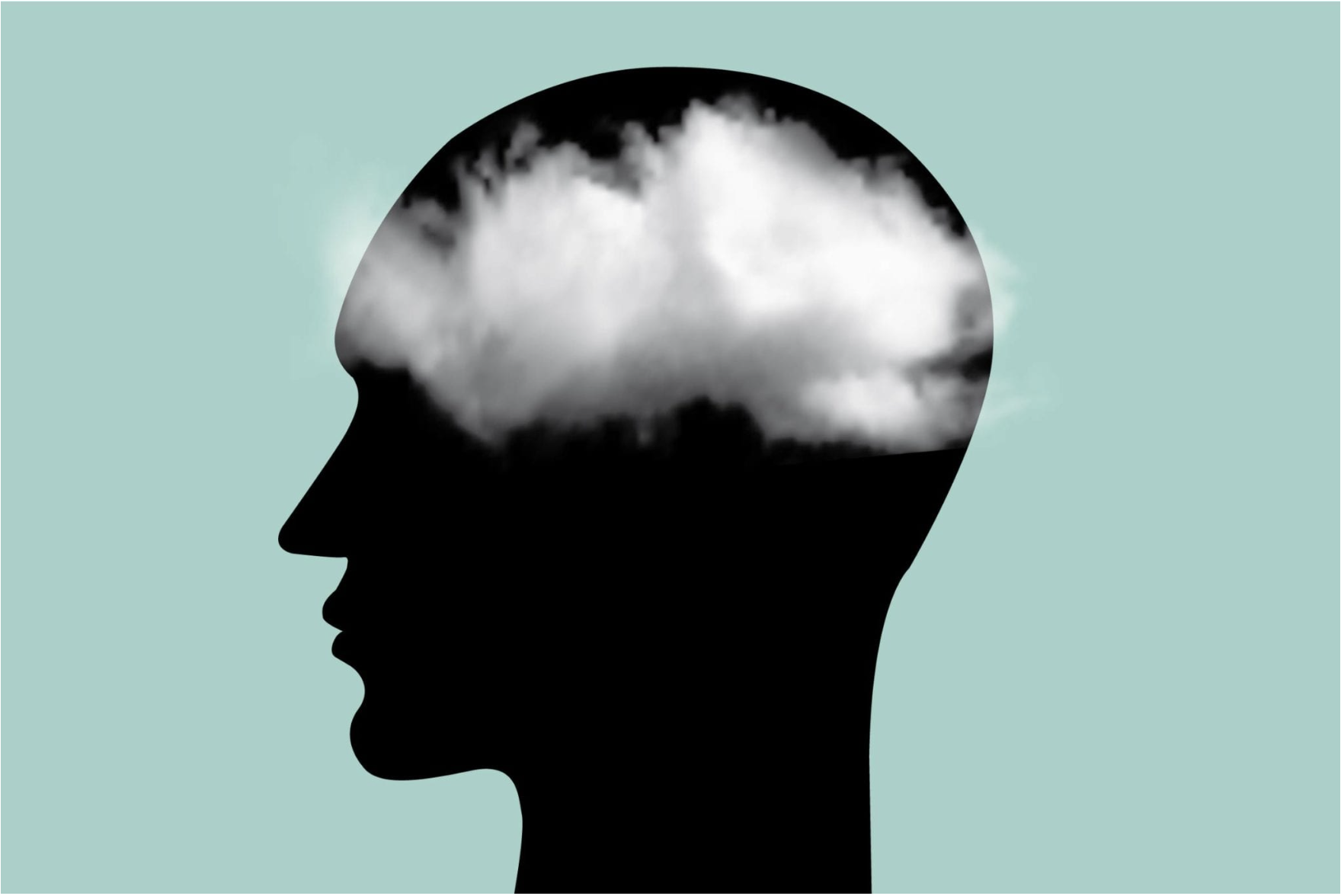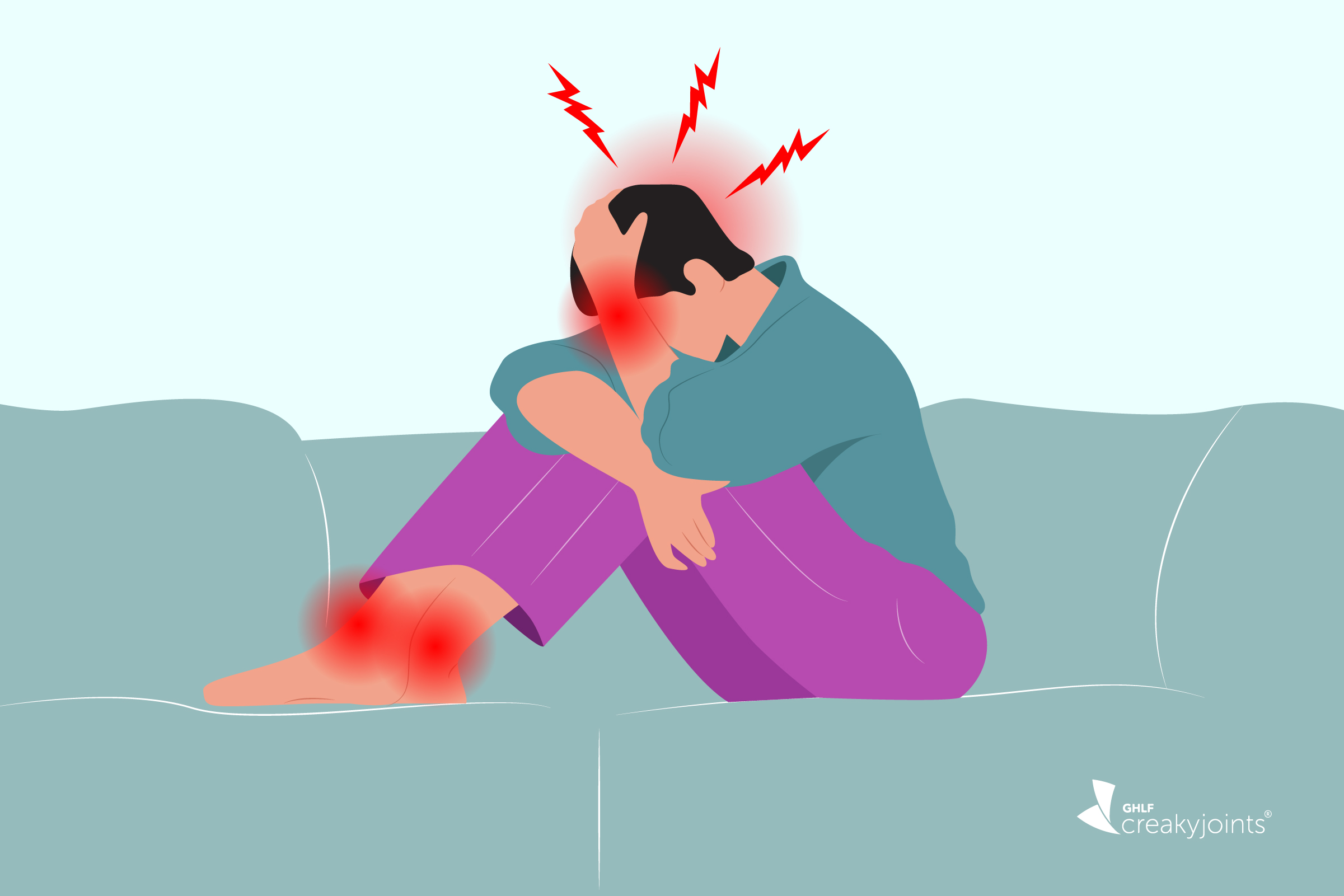The Up-End Migraine Project reveals key gaps in episodic migraine care, aiming to drive change and improve treatment options for patients through insights from both providers and patients.

A New Study Shows That Migraine Patients May Have Higher Risk of COVID-19
A NEW STUDY SHOWS THAT MIGRAINE PATIENTS MAY HAVE HIGHER RISK OF COVID-19
June 28, 2021
Kelsey Kloss

New research suggests that individuals with migraine may have a higher incidence of COVID-19 and heightened COVID-19 symptoms — but they might be less likely to use health care resources if they test positive for COVID-19, compared to people without migraine.
Before we get into the details of the study, here’s some background on what inspired it. Previous research has shown that headache and migraine symptoms are associated with COVID-19 in various ways. Headache, to start, is a common symptom of COVID-19, long COVID, and post-COVID-19 vaccination. That said, people with COVID-19 who have headache and get admitted to the hospital tend to have a shorter disease course than people who have COVID-19 and are admitted to the hospital without headache. When migraine occurs with COVID-19, it typically appears early on in the infection.
With these various data points in mind, authors of a new study presented at the American Headache Society Virtual Annual Meeting set out to determine if people with migraine might have an altered COVID-19 susceptibility.
The researchers looked at a sample of American adults ages 18 to 65 from the National Health and Wellness Survey, with responses recorded from April to July 2020. The study included over 66,000 respondents, which included 7,759 people with a migraine diagnosis.
Nearly 4 percent of people with migraine self-reported COVID-19 and 1.32 percent said they tested positive for COVID-19. On the other hand, only 2.42 percent of the group without migraine self-reported having COVID-19 and 0.82 percent said they tested positive.
Of respondents who had COVID-19, those with migraine reported more COVID-19 symptoms such as difficulty breathing, cough, and fever.
“People who have migraine are more likely to report having symptoms of COVID, migraine symptoms early on in their development of COVID, and more symptoms when they do have COVID,” says study author Robert Shapiro, MD, PhD, Professor of Neurological Sciences at Larner College of Medicine at the University of Vermont.
While people with migraine reported a higher incidence of COVID-19 and heightened COVID-19 symptoms, they were also less likely to access health care than people without migraine. That included going to emergency departments and being admitted to the hospital.
There could be a few reasons behind this: Individuals with migraine may be more susceptible to COVID-19, more likely to be aware of COVID-19 symptoms, or more prone to report COVID-19 symptoms (or a combination of all three).
They may also be less likely to develop serious COVID-19 or to use health care resources when infected with COVID-19 (or a combination of both).
“People with migraine who seek care in emergency departments often find it to be a frustrating experience,” says Dr. Shapiro.
“Emergency departments are often loud and bright, and there may be delays in getting care — and research shows that more than half of the time, emergency departments in the United States treat people with migraine with opioids, which we know is not the optimal therapy for acute migraine. So people who may be frustrated with seeking care for migraine may be less likely to seek care on the basis of COVID-19 too,” he continues.
It’s also worth keeping in mind that these surveys were performed at a time when hospital admission was more challenging across the United States because of COVID-19 transmission concerns and limited health care resources.
“It’s less of a problem now, because fewer people are contracting COVID-19, and the percentage of people who contract COVID-19 after they’ve been vaccinated is quite low,” says Dr. Shapiro. “I don’t think the likelihood of developing COVID-19 or having more favorable outcomes are going to be largely affected if people are vaccinated.”
A limitation of this study is that the data was self-reported, and more research is needed to determine the mechanisms behind these results. In the meantime, the best thing you can do to protect yourself from COVID-19 is to get vaccinated — and to encourage those in your immediate circle to do so as well.
Interview with study author Robert Shapiro, MD, Professor of Neurological Sciences at Larner College of Medicine at University of Vermont
Migraine is associated with higher incidence of COVID-19, and higher frequency of COVID-19 symptoms, but lower COVID-19 – associated health care resource utilization rates. American Headache Society Virtual Annual Scientific Meeting. June 3-6, 2021. Presentation provided by study author.
Shapiro RE, et al. The impact of headache disorders on COVID-19 survival: a world population-based analysis. MedRxiv. March 12, 2021. doi: https://doi.org/10.1101/2021.03.10.21253280.
SUBSCRIBE TO GHLF
RELATED POST AND PAGES
_
Was this article helpful?
YesNo




